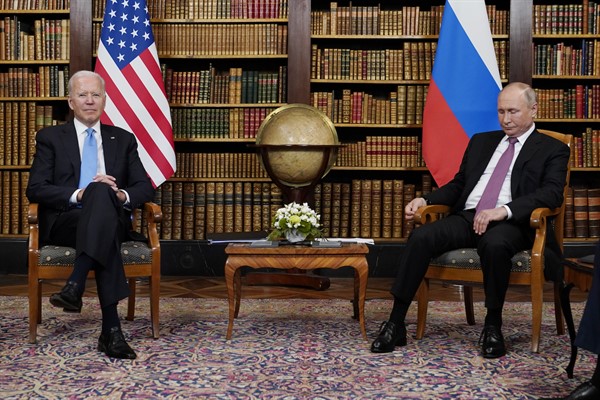There is something clarifying about the fact that the opening of high-level U.S.-Russian talks this week to discuss the crisis Moscow has provoked over Ukraine comes just days after the one-year anniversary of the storming of the U.S. Capitol. The two events are not directly related, but they both make up parts of a difficult challenge facing U.S. policymakers: how to preserve Washington’s global leadership role at a time when its model of governance, both domestically and internationally, is increasingly called into question.
That dual-pronged challenge has come into sharper focus in the past five years, as the U.S. foreign policy establishment, and more recently the U.S. public, has woken up to two stark facts shaping the geopolitical landscape in which U.S. power operates. First, Washington more often faces competitors that can if not rival its ability to project power globally, frustrate its efforts to leverage that global pre-eminence locally. Second, though the primary object of that competition is power, it is in important ways being driven by systemic and ideological factors, at a time when the United States’ bona fides as a champion of democratic ideals and institutions have been tarnished by four years of erosion under the presidency of Donald Trump.
Both realizations, though salutary, are belated, as the rivals in question—primarily Russia and China—have for more than a decade had no illusions about the nature of the contest and their goals in pursuing it. By contrast, the U.S. has spent most of that time distracted by costly, if ultimately peripheral, crusades, its vision obscured by wishful thinking and self-delusion about the attractiveness of a global order under Washington’s hegemony to countries that aspire to more than subordinate status, no matter how lucrative and well-compensated it might be.

